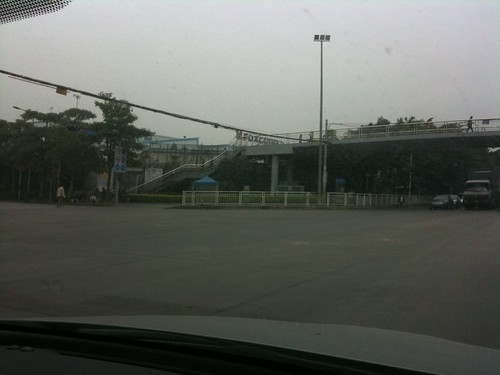Your Life is Manufactured is written by Tim Minshall. Minshall is the professor of innovation at the University of Cambridge. He runs the Engineering department’s manufacturing research centre, so has a mastery of his domain. This is immediately obvious from his book, which he manages to write as an exceptionally accessible guide to what manufacturing is, how it is done and hints at why it’s important.
Before getting into the book to understand why it was so popular, I had a number of questions about the book:
What was Your Life is Manufactured purpose as a book?
Your Life is Manufactured looked to demystify how stuff is made. The book whilst accessible is aimed at adults and older children. Minshall keeps things very simple, only once touching on subject matter knowledge name-checking Japanese academic Noriaki Kano‘s work with a very simplified explanation of some of the principles of the Kano model of customer satisfaction.
His explanation as to why manufacturing is important is basically because everything around us is made. He avoids the economic reasons including:
- Increased economic productivity
- Increased growth
- Widespread employment for skilled workers
- The national security adjacent area of resilience
All of which are very important, pertinent points for the UK. Minshall’s choices about what he left out of Your Life is Manufactured is as interesting as what he left in. Whilst the book deplatforms the romantic notions of many environmentalists, Minshall assiduously avoids political territories.
Why is it needed?
When I was a child, I remember other children in my primary school didn’t know that milk came from a cow. They had no idea what happened before the jug of milk appeared in the fridge of their local supermarket. Urban living had divorced many people from nature.
I spent a good deal of my time on a small holding in the west of Ireland as a child, so got to see a cow being milked and the creamery tanker taking away from the milk from the churn to be processed. For those who hadn’t seen this process, city farms started to spring up as educational aids giving a basic if romantic view of farming life.
But we all had an intuitive view of what manufacturing was. While it seems arcane now Unilever’s local factory used to blow a steam whistle signalling the changing of a shift across its large industrial site. It marked the time when I set out around the corner to infant school.
Early on Sunday morning, there was a sharp blast which signalled the weekly cleaning out of the boilers, steam and smoke bellowed into the sky followed by the distinctive smell of the boilers contents.
There were similar sirens at the local shipyards and at other factories. Ships carrying cargo would regularly sound their fog horns. Lorries trundled in and out of factory gates and along nearby roads.
Large factories like the Shell Stanlow oil refinery, the Bowater paper mill and the Vauxhall car plant held open days where workers would take friends and family around the plant showing them what it did and inspiring young minds. Years later, as a student, one of my jobs was running the visitors centre for a terminal that processed natural gas.
There was innate curiosity about how things were made. I still have my collection of ‘How It Works’ encyclopedia that I had as a child. My parents sold the original early 1970s part works series in a cardboard box that my Dad had collected and sparked my interest in the version I now have, which we upgrade to when I was still in primary school.
During my career, I have seen several manufacturing processes including a giant printing works in Shenzhen, the infamous Foxconn factory complex and Global Foundries Dresden semiconductor fab.
Now with globalisation and delivery to the door many children of all ages are completely divorced from the means of production. Your Life is Manufactured is a small step in what would need to be a larger process to ground the general public in manufacturing and why it’s important, yet fragile.
Overall thoughts
That Your Life is Manufactured is considered a business book of note, says a lot about how deeply the British people are separated from how things are made – and that’s a frightening thought. Minshall’s book is a good first step in opening up British minds about manufacturing and its requirement of a place in our society. It’s immensely readable and woke me up to the collective ignorance surrounding me.
You can find more book reviews here.

